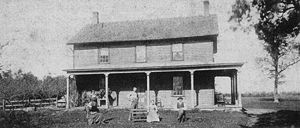Today marks the fiftieth anniversary of the assassination of Martin Luther King, Jr., in Memphis, Tennessee. My husband and I were stationed there at that time. It was an ugly moment in time. Martin Luther King, Jr., had come to the city in an attempt to quiet things down during a garbage strike which began in February 1968. Two black men had been killed while sitting on the back of a garbage truck smoking a cigarette. Racial tensions were high. Martin Luther King, Jr., first came to the city to address the strikers in March. He supported peaceful protest, but there were people in his inner circle that wanted more drastic action.
Martin Luther King, Jr., believed in racial equality. He believed that men (and women) should be judged by the content of their character–not the color of their skin. I also think he believed in equal educational and professional opportunities for everyone, regardless of race. Some of these ideas have been lost in recent years.
On March 26, The Hill reported:
Interior Secretary Ryan Zinke downplayed the importance of diversity in the workforce and at his department on multiple occasions, CNN reported Monday.
Zinke made a number of off-the-cuff remarks that insinuated he did not prioritize diversity within the Interior Department, multiple senior administration sources told the network.
The officials said that the secretary instead said multiple times that he valued finding the best people and most qualified applicants, regardless of their cultural or racial backgrounds.
Interior Department spokeswoman Heather Swift denied that Zinke ever made the comments about diversity and denied the claims in the report.
“The anonymous claims made against the secretary are untrue. As a woman who has worked for him for a number of years in senior positions, I say without a doubt this claim is untrue, and I am hopeful that they are a result of a misunderstanding and not a deliberate mistruth,” Swift said in a statement.
People should be hired on the basis of their qualifications. If there is a lack of diversity, we need to improve the educational system so that there will naturally be diversity in the best people qualified for a job. I believe that is what Martin Luther King, Jr., had in mind. Quotas and hiring people for the sake of diversity rather than for their qualifications is just as wrong as disqualifying people because of their race, sex, etc.
We still have a long way to go to achieve the dream of Martin Luther King, Jr.





